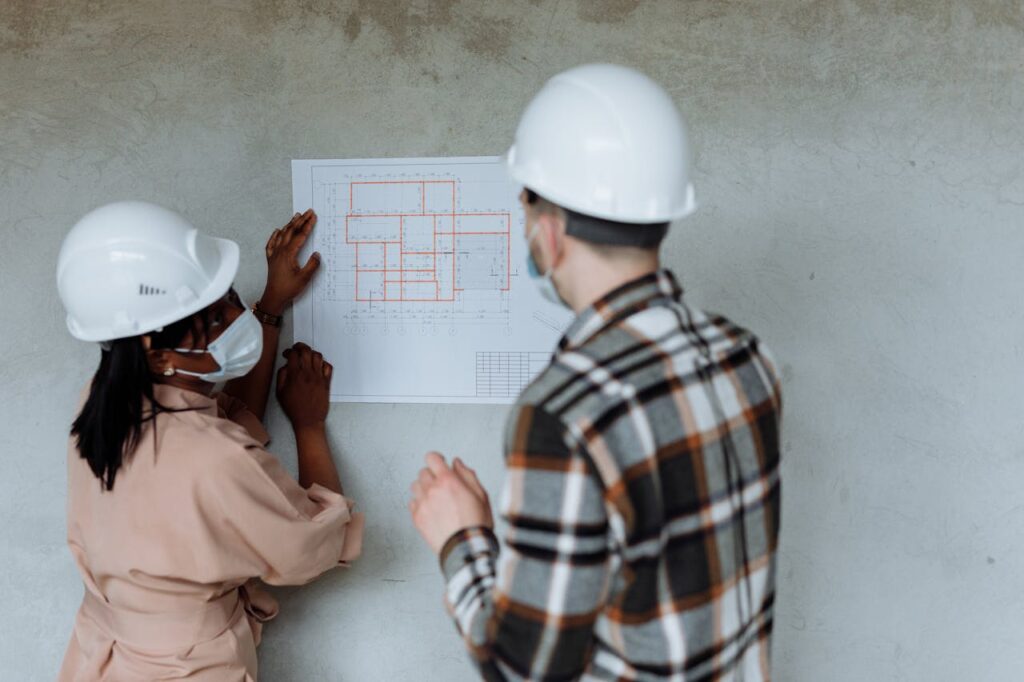
Managing construction projects smoothly can be a challenging task. There are so many moving parts and people involved, making it essential to have a clear plan and effective tools. Without the right strategies, projects can quickly go off track, leading to delays and increased costs.
In this article, we will dive into these critical areas and provide tips for managing construction projects smoothly. These strategies can help you keep your projects on schedule, within budget, and of high quality.
Effective Planning and Scheduling
Effective planning and scheduling are the cornerstones of successful construction project management. A well-laid-out plan ensures that every aspect of the project is mapped out, resources are allocated efficiently, and timelines are met.
First, start with a detailed project scope. Define the objectives, deliverables, and requirements clearly. This helps everyone understand what needs to be done and what the end goal is. Break the project into smaller tasks and set specific deadlines for each task. Use a project management software tool to keep track of these tasks and deadlines.
Next, create a realistic timeline. Consider all factors that could affect your schedule, such as weather conditions and availability of materials. Make sure to include buffer times for unforeseen delays. A well-thought-out timeline helps in keeping the project on track without rushing through important phases.
Resource allocation is another key element. Ensure that you have enough manpower, equipment, and materials for each phase of the project. Over-allocating or under-allocating resources can lead to delays and increased costs. Regularly review your resource plan and adjust it as necessary.
Communication and Collaboration Tools
Communication and collaboration tools are vital for keeping everyone on the same page. Clear and timely communication ensures that everyone involved in the project knows what is expected of them and can share updates effectively.
Use reliable project management software to centralise communication. Tools like Microsoft Teams, Slack, or specialised construction management software can facilitate real-time updates and discussions. These platforms allow team members to share documents, updates, and feedback instantly, reducing the chances of miscommunication.
Regular meetings are essential. Schedule weekly or bi-weekly meetings to discuss progress, address issues, and plan for the next steps. These meetings help in aligning everyone’s efforts and addressing any concerns promptly. Use video conferencing tools to include remote team members and stakeholders who can’t be on-site.
Document everything. Maintain records of all communications, decisions, and changes made during the project. This helps in tracking progress and can be useful if any disputes arise later. Written records ensure that everyone has access to the same information and can refer back to it if needed.
Managing Risks and Issues
Managing risks and issues in construction projects is crucial for keeping things running smoothly. Identifying potential risks early and having a plan to handle them can help prevent disruptions and additional costs.
1. Risk Identification: Start by identifying all possible risks. These can range from weather conditions and supply chain disruptions to safety concerns and regulatory changes. List these risks and assess their potential impact on the project.
2. Risk Mitigation Plan: Develop a mitigation plan for each identified risk. This plan should outline the steps you will take to minimise the impact of the risk or avoid it altogether. For example, if bad weather is a risk, consider having an indoor workspace for crucial tasks.
3. Assign Responsibility: Make sure everyone knows who is responsible for managing specific risks. This ensures that risks are monitored and addressed promptly. Assigning responsibility helps in quick decision-making and action when needed.
4. Monitor and Review: Regularly review the risk management plan. As the project progresses, new risks might emerge, and existing ones might change. Keeping the risk management plan updated ensures that you can handle issues as they arise.
5. Issue Resolution: Have a clear process for resolving issues that come up during the project. This might involve setting up an issues log where problems are recorded, assigned, tracked, and resolved. Timely resolution of issues prevents them from escalating and affecting the project timeline and budget.
Monitoring Progress and Performance
Monitoring progress and performance is essential for ensuring that a construction project stays on track and meets its goals. Regular monitoring helps in identifying any deviations from the plan and allows for timely corrections.
Key Performance Indicators (KPIs): Use KPIs to measure progress and performance. Some common KPIs in construction projects include schedule variance, cost variance, and quality metrics. Regularly track these KPIs to get an accurate picture of the project’s status.
Site Inspections: Conduct regular site inspections to evaluate the actual progress against the planned progress. These inspections help in identifying any on-site issues and ensure that the work meets the required standards and specifications.
Progress Reports: Prepare detailed progress reports and share them with all stakeholders. These reports should include updates on completed tasks, upcoming activities, any delays or deviations, and their impact on the project. Clear and transparent reporting helps in keeping everyone informed and aligned.
Performance Reviews: Hold regular performance review meetings with your team. Discuss successes, challenges, and areas for improvement. These meetings provide an opportunity to address any issues and reinforce what’s working well.
Use Technology: Leverage technology for real-time monitoring and reporting. Construction management software can provide dashboards and automated reports, making it easier to track progress and performance. These tools offer insights that can help you make informed decisions and keep the project on track.
Conclusion
Managing construction projects smoothly requires effective planning, clear communication, robust risk management, and continuous monitoring. Each of these elements plays a crucial role in ensuring that projects are completed on time, within budget, and to the desired quality standards.
If you want expert support in managing your construction projects, look no further than Edara Systems Australia. We provide comprehensive consultancy and quality management certification in Australia to help you achieve your project goals smoothly and efficiently. Get in touch with us today to learn how we can assist you!



